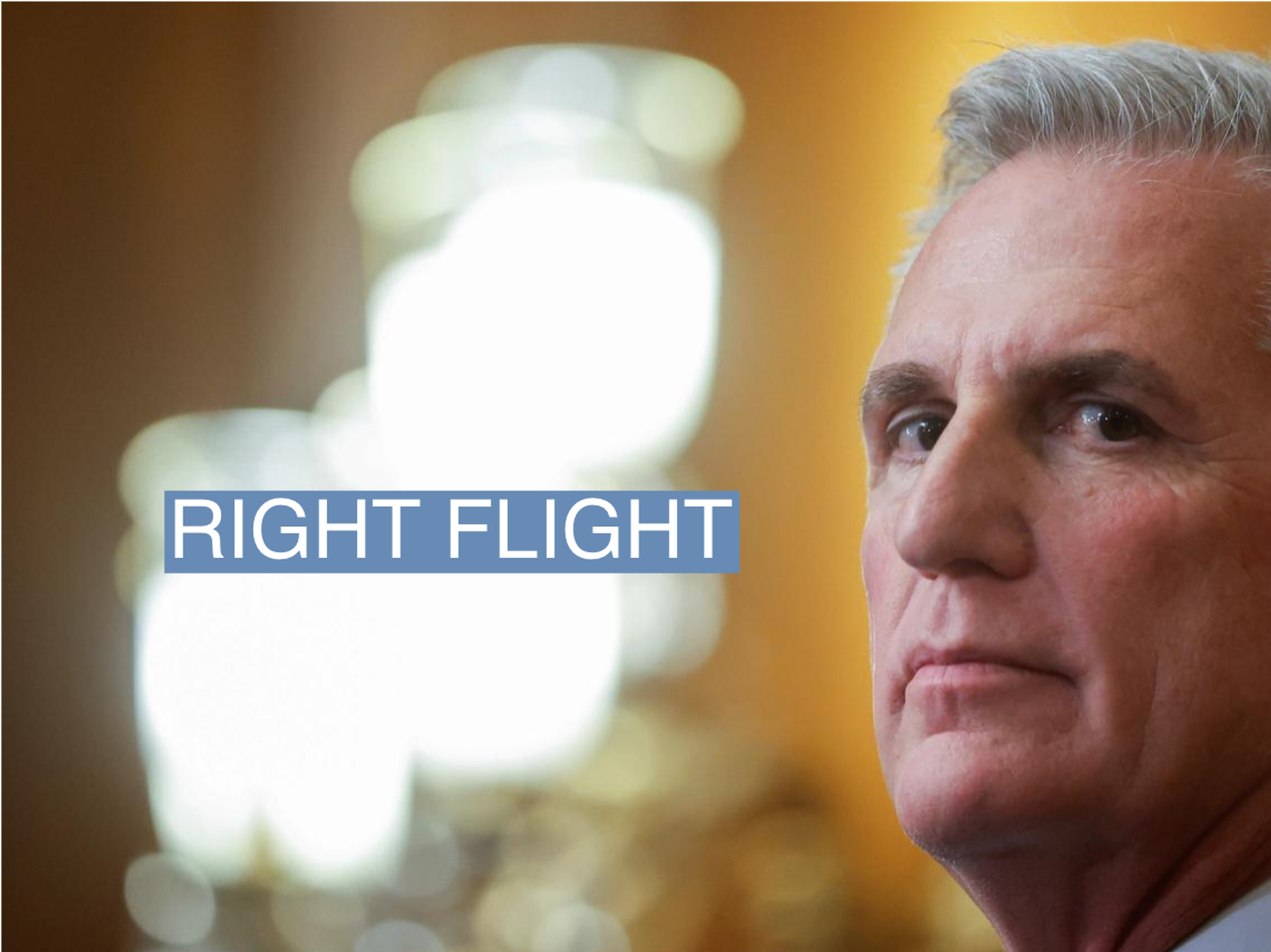The News
It was another rough afternoon for Speaker Kevin McCarthy, who canceled votes for the rest of the week on Wednesday amid an impasse between leadership and the group of hard-right lawmakers who have effectively ground business in the House to a halt.
McCarthy acknowledged “there’s a little chaos going on,” but told reporters they would resolve the dispute.
“What we’re going to do is we’re going to come back on Monday, work through it, and be back working for the American public,” he said.
The House is on day two of a stalemate after 11 members voted down a measure to bring a handful of prized Republican messaging bills to the floor, including legislation that would block states from banning gas stoves.
The conflict has put a spotlight on tensions between McCarthy and his no. 2, Majority Leader Steve Scalise, who notably played a less prominent role in debt ceiling talks than his rank would suggest.
McCarthy suggested on Wednesday that the revolt began after Scalise, who runs the floor schedule, and Rep. Andrew Clyde, R-Ga. had gotten into a “miscalculation or misinterpretation of what one said to another” over a vote on a bill to repeal a rule on pistol braces.
In an interview with Punchbowl, Scalise blamed widespread outrage at McCarthy, and said conservatives felt “misled” by whatever agreement they made to support him as speaker — the details of which Scalise said even he was not privy to.
There are signs negotiations — presumably held throughout the day — garnered some gains for the rebels. When asked if members were any closer to a deal, Rep. Tim Burchett, R-Tenn., one of the holdouts, told Semafor “A little bit but not enough.” It was a slight break from the antagonizing “HOLD THE FLOOR” tweets coming from other members earlier Wednesday, but the House remained effectively frozen.
In this article:
Kadia’s view
It’s unclear how any of this will be resolved in part because it’s still not entirely clear what the rebels want. Even McCarthy said he wasn’t sure how to define their demands, which he said were coming from members inside and outside the House Freedom Caucus.
“This is the difficulty,” McCarthy said. “Some of these members, they don’t know what to ask for. There’s numerous different things they’re frustrated about.”
Adding to the confusion from the outside, members have sometimes alluded during the recent debt ceiling fight to the apparently secret commitments from McCarthy that they secured during the 15-round vote to make him speaker, and now appear to be pushing to try and renegotiate the terms of that purported agreement. Without knowing what they are, it’s difficult to judge where the grievances might be rooted.
Still, conservatives have made abundantly clear they’re upset over the debt ceiling agreement with the White House. On Tuesday, Dan Bishop suggested he’s still annoyed Republican leadership didn’t cap nondefense discretionary funding at fiscal year 2022 levels during debt limit negotiations, for example.
“Right now we are refusing to allow the failure theater to continue to play out,” Rep. Matt Gaetz, R-Fla. said in an interview with NewsNation. “We want to see rescissions, more spending cuts — we think McCarthy and his negotiators got rolled by Biden and by the Democrats and now House conservatives are flexing our muscle.” He added that members wanted more input on bills moving forward.
We got a bit of a hint of how McCarthy might try to address those concerns, when the speaker suggested he would allow appropriators to write bills below the agreed-upon spending caps. “If we can write it to even lower levels, then we should do it in the House,” McCarthy told reporters.
Some members of the GOP conference’s right flank seemed to anticipate this strategy more than a week ago, while the debt ceiling fight was winding down.
“My expectation: He will exercise his influence on the Appropriations Committees as when the 12 approps bills come out,” Rep. Ralph Norman told Semafor immediately after the House passed the bill to raise the debt ceiling last month. “If it’s not conservative; if he’s not cutting spending, then that will be disappointing.”
Room for Disagreement
Democrats would almost certainly see any attempt to go below the spending caps as reneging on their debt ceiling compromise, potentially throwing budget talks into chaos.
“McCarthy trying to break his deal with Biden drastically increases the chances of a shutdown,” Aaron Fritschner, a senior House Democratic staffer, tweeted in response to the news. “A key reason Biden didn’t engage with R’s for so long was concern about whether they could trust McCarthy to make a deal his conference would live by.”
